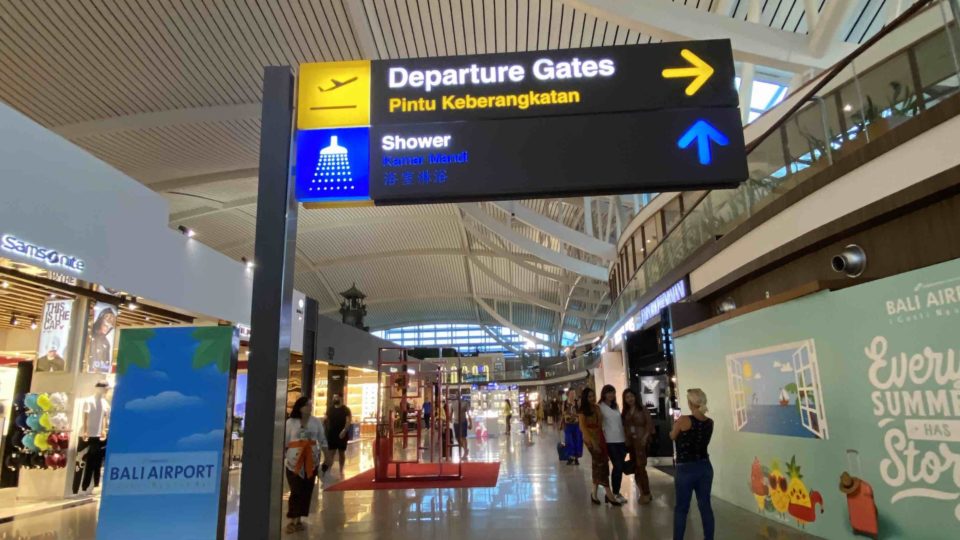Shoes are staying on when Aussies board their flights home from Bali, an official of the island said, amid calls from down under for travelers to ditch their footwear when returning from Indonesia due to foot-and-mouth disease (FMD) concerns.
Authorities in Australia, including New South Wales Deputy Prime Minister Paul Toole and the country’s farmers’ federation, recently said that sun seekers in Bali who are heading back to Australia pose a high-risk of bringing the highly-contagious livestock disease into the country.
They even urged travelers to leave their shoes behind in Bali. The virus that causes the disease has been known to stick on footwear, as well as other articles of clothing, for up to 24 hours upon contact with contaminated soil.
Yet traveling Aussies don’t seem to be paying the advisory much heed.
Ngurah Rai International Airport General Manager Handy Heryudhitiawan said today that it’s been business as usual at the facility despite the footwear-ditching advisory from Australia.
“Up until now, the I Gusti Ngurah Rai Airport is not acquainted with the regulations for Australian citizens when they arrive [at their country],” Handy said, adding that the airport does not provide special footwear for international travelers should they decide to ditch their shoes prior to boarding their flights.
Australian authorities have understandably been on edge over the FMD outbreak in Indonesia and other neighboring countries, as the disease may wipe out its agriculture and tourism sectors. The federal government has earmarked an extra AUD14 million (US$9.4 million) in funding to combat FMD, including by bolstering its biosecurity screenings at airports and providing financial support to Indonesia to combat the disease locally.
Indonesia’s Ministry of Agriculture Syahrul Yasin Limpo downplayed fears of FMD’s spread down under when he welcomed his Australian counterpart Murray Watt in Jakarta yesterday. Syahrul claimed that while Bali has successfully contained the outbreak, authorities will still disinfect travelers entering and exiting the island to keep it free from the disease.
Indonesia’s FMD outbreak began in May this year – decades after the eradication of the disease in 1986. Bali authorities are currently investigating how the disease spread to the island, while imposing bans on the transportation of cattle to and from other regions and stepping up a mass vaccination program.
According to official data, as of last week, 128 cows in Bali were confirmed to have FMD. That pales in comparison to the numbers on the national scale, where, as of July 13, 365,146 livestock – mostly cows – have contracted the disease.
Australians traditionally rank among the top in terms of tourist numbers in Bali. After Bali reopened earlier this year and relaxed travel restrictions, the island has been seeing an increasing number of Aussie holidaymakers in the past couple of months.




